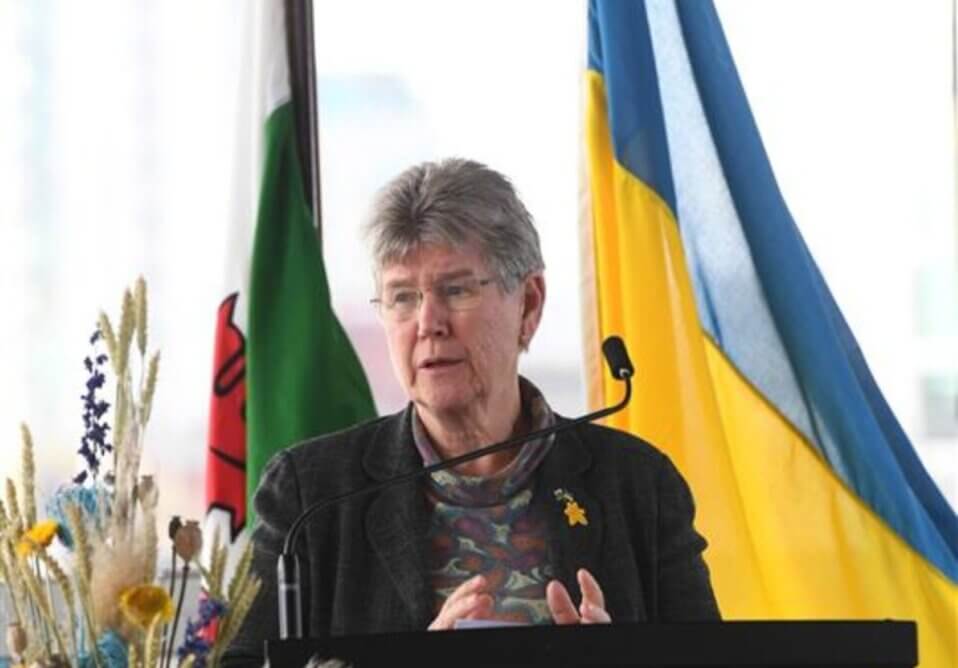The United Kingdom has long been one of the most desirable destinations for international students, including Ukrainians who have found themselves abroad due to the war or hold permanent residency (PR). The country’s universities are renowned for their high-quality education, wide range of specialties, and global career prospects. Wales, as part of the UK, offers unique advantages for these categories of students.
Benefits of Studying for Refugees and PR Holders
- Special Support Programs: Many UK universities have introduced initiatives to support refugees, such as tuition discounts, free language courses, and adaptation programs. These programs help students integrate into academic and social life in the UK, easing the transition to a new environment.
- Access to Financial Aid: Ukrainians with PR or refugee status can apply for government student loans to cover tuition and living expenses. Additionally, some universities offer emergency funds or grants to cover unexpected costs during studies.
- Work Opportunities: Students are allowed to work up to 20 hours per week during their studies and, after graduation, can obtain work authorization through the Graduate Route program. This provides valuable work experience and helps students sustain themselves financially while studying.
Features of Studying in Wales
Wales offers a unique combination of affordability, quality education, and a welcoming atmosphere. Its universities are recognized for their dedication to supporting international students, particularly refugees and those with PR.
Popular Universities in Wales
- Cardiff University: Renowned for its world-class research and facilities, Cardiff University provides scholarships specifically designed for refugees and PR holders. It also offers comprehensive psychological support programs and mentorship initiatives.
- Swansea University: This university is known for its strong emphasis on community engagement and offers adaptation courses for international students, including tailored support for those from conflict zones.
- Bangor University: Located amidst stunning natural landscapes, Bangor University provides tuition discounts and language support programs to help students integrate into academic and social settings.
Colleges and Specialized Courses in Wales
In addition to universities, Wales offers a variety of colleges and specialized courses catering to the needs of refugees and PR holders:
- Further Education Colleges:
- Coleg Gwent and Coleg Cambria: These colleges provide vocational and technical training in areas like business, healthcare, IT, and engineering.
- Many colleges offer English for Speakers of Other Languages (ESOL) courses, tailored for refugees to improve their communication skills and prepare them for higher education or employment.
- Short-Term Professional Courses:
- Numerous organizations and colleges in Wales provide free or subsidized short-term courses in sectors such as hospitality, digital skills, and construction. These programs help students gain certifications and find quick employment.
- Access Courses:
- For students who may not meet the traditional academic entry requirements, access courses are available to help bridge the gap and prepare them for university-level education.
- Online Learning Opportunities:
- Platforms like OpenLearn (by The Open University) and FutureLearn partner with Welsh institutions to offer free or low-cost online courses in various disciplines.
Scholarships and Grants
- Global Wales Postgraduate Scholarship: This program offers financial support for students at the master’s level, covering a significant portion of tuition fees. It prioritizes applicants from specific regions, including Ukraine.
- University-Specific Grants: Many Welsh universities, such as Cardiff and Swansea, provide grants that fully or partially cover tuition costs for refugees and PR holders. These grants often include additional support, such as accommodation assistance or access to free study materials.
Student Loans in the UK
One of the most significant advantages for refugees and PR holders is access to government-funded Student Loans, which make education in the UK financially accessible. Here’s how they work:
- Eligibility: Refugees, PR holders, and those with specific humanitarian statuses can apply for student loans to cover their tuition fees. These loans are available for undergraduate, master’s, and doctoral programs at recognized universities.
- Tuition Fee Loan:
- Covers the full cost of tuition, paid directly to the university.
- Available for students enrolled in full-time or part-time programs.
- Maintenance Loan:
- Provides financial support for living expenses, including accommodation, food, and travel.
- The amount depends on factors such as household income, location of the university, and whether the student lives at home or independently.
- Repayment:
- Repayments start only after the graduate earns above a specific income threshold (currently £25,000 annually in most cases).
- The repayment amount is a small percentage of income above the threshold, making it manageable.
- Outstanding loan balances are written off after 30 years if not fully repaid.
- Application Process:
- Applications are submitted through Student Finance Wales or the relevant regional body, depending on where the student resides.
- Documents required include proof of refugee or PR status, evidence of household income, and acceptance from a university.
Admission Process for Refugees and PR Holders
- Choosing a University and Program: Research universities and programs that align with your career goals and personal interests. Many universities have dedicated staff to assist refugees and PR holders with the selection process.
- Documents Required:
- Proof of refugee status or PR.
- Educational qualifications (high school diploma or bachelor’s degree, depending on the level of study).
- English language proficiency test results (IELTS, TOEFL, or equivalent).
- Personal statement outlining your motivation and goals for studying.
- Application Submission: Most undergraduate applications are processed through UCAS, while postgraduate applications are submitted directly to universities. Some universities waive application fees for refugees.
- Financial Aid Applications: In addition to tuition loans, explore grants and scholarships offered by universities and external organizations.
- Visa Requirements and Adaptation Support: Refugees and PR holders often face simplified visa procedures or may not require a student visa. Universities typically offer orientation programs and cultural adaptation support.
Life as a Refugee Student in Wales
- Accommodation Options: Universities often prioritize refugees for on-campus housing. Some institutions also provide subsidized accommodation or assistance in finding affordable private housing.
- Cultural Integration: Welsh universities actively organize events and programs to help international students integrate into local communities. Cultural societies, including Ukrainian student associations, offer opportunities for networking and support.
- Language and Skills Development: Many universities provide free or low-cost English language courses and workshops to help students improve academic and professional skills.
- Health and Psychological Support: Refugees often face unique challenges, and universities in Wales ensure access to comprehensive health and psychological support services, including counselling and peer support groups.
Post-Graduation Opportunities
- Graduate Route Program: After completing their studies, students can stay in the UK for two years to work or look for employment under the Graduate Route program. This pathway allows students to gain practical experience and establish themselves professionally.
- Networking and Career Services: Welsh universities have strong links with local industries and offer career services to help students find internships, part-time jobs, and full-time employment opportunities.
Conclusion
Studying in Wales opens up vast opportunities for Ukrainian refugees and PR holders. With its financial support programs, adaptation initiatives, and welcoming academic environment, Wales provides the ideal platform for students to achieve their educational and professional aspirations while integrating into a new society. This journey not only offers high-quality education but also the chance to build a brighter future in a supportive and inclusive community.
Disclaimer
The information provided in this article is for general guidance only and does not constitute legal or financial advice. While every effort has been made to ensure accuracy, readers are advised to consult official university resources, legal advisors, or financial consultants for specific advice tailored to their individual circumstances. The authors and publishers of this article disclaim any liability for actions taken based on its content.






